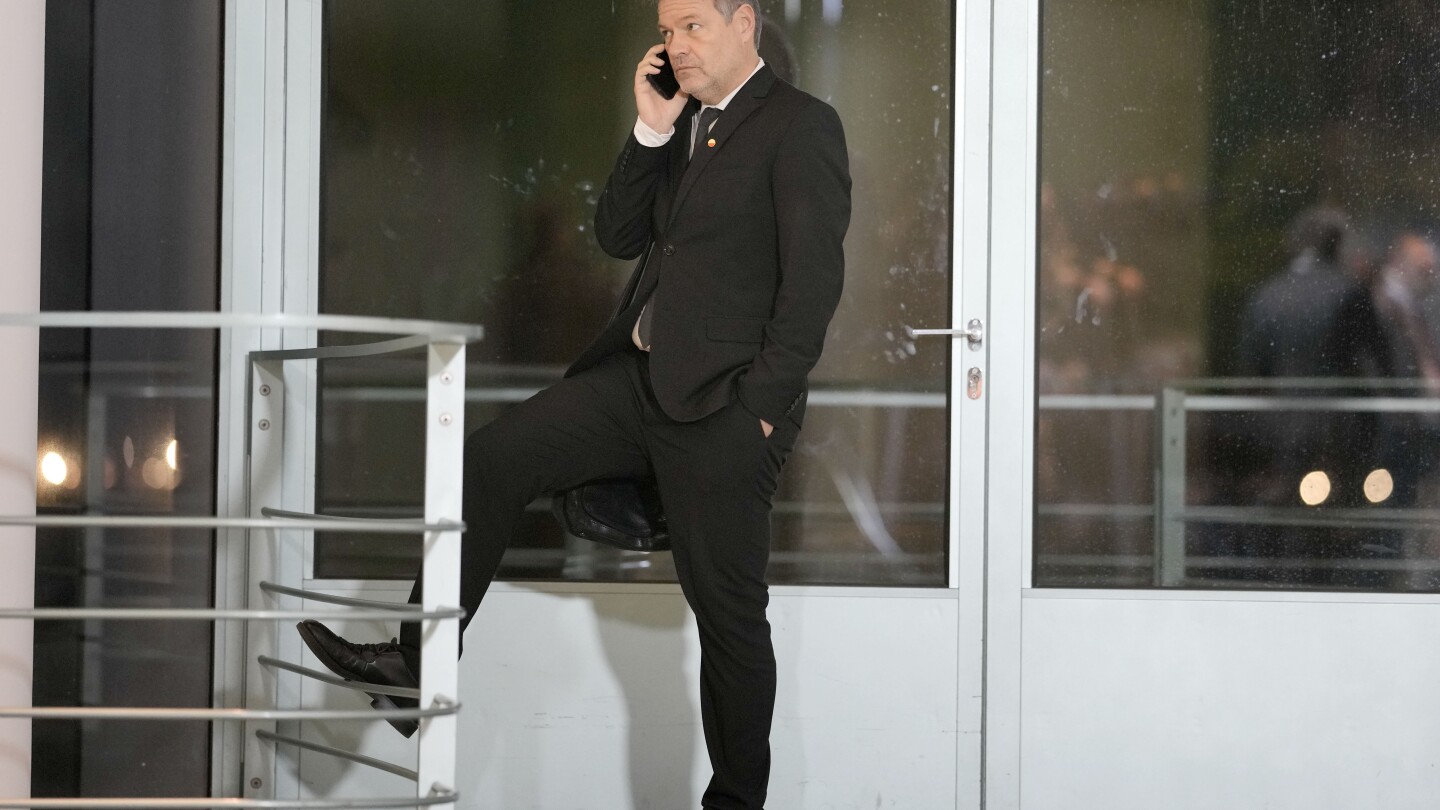BERLIN (AP) — A group of farmers prevented Germany’s vice chancellor from disembarking a ferry, hours after the government partially climbed down on cost-saving plans that had infuriated the agricultural sector. The protest drew condemnation from both government and opposition figures.
Farmers headed to a jetty in Schluettsiel on the North Sea coast Thursday afternoon ahead of the arrival of the ferry carrying Vice Chancellor Robert Habeck following calls on social media for a protest, police said Friday. Habeck had been on a personal trip to the small island of Hooge.
Between 250 and 300 people gathered to demonstrate. Police said it wasn’t possible to arrange a dialogue between Habeck and organizers in the tense situation, so the ferry departed again. Up to 30 demonstrators tried to board the vessel, but were held back by police using pepper spray.
Habeck, a member of the environmentalist Green party who is also economy and climate minister, was able to reach the mainland during the night.
Chancellor OIaf Scholz’s unpopular government angered farmers in December by announcing plans to cut agricultural subsidies as part of a package to fill a 17-billion-euro ($18.6-billion) hole in the 2024 budget. Farmers staged a protest with tractors in Berlin and called for more demonstrations next week.
On Thursday, the government announced a partial about-turn. It said it would retain an exemption from car tax for farming vehicles and would stagger planned reductions in tax breaks for diesel used in agriculture.
The German Farmers Association quickly said that the change didn’t go far enough. It said it was still demanding that both proposals be reversed and it would stick to its planned protests.
Scholz’s spokesperson, Steffen Hebestreit, wrote on social platform X, formerly Twitter, that the ferry blockade “is shameful and violates the rules” of democratic society. Justice Minister Marco Buschmann wrote that “violence against people or objects has no place in the political argument! This discredits the cause of many farmers who demonstrate peacefully.”
“I share farmers’ concerns, but this transgression is absolutely unacceptable,” Hendrik Wüst, the governor of North Rhine-Westphalia state and a member of Germany’s main conservative opposition bloc, wrote on X. “It damages the farmers’ justified cause and must have consequences.”
German Farmers Association President Joachim Rukwied said in a statement Friday that “blockades of this kind are a no-go.” He added that “personal attacks, abuse, threats, coercion or violence are just not right,” and that his association respects politicians’ privacy.
Habeck said he regretted that it hadn’t been possible to speak to the farmers.
“What gives me reason for thought and concern is that the mood in the country is getting so heated,” Habeck said in a statement.
The budget revamp that included the disputed cuts was necessary after Germany’s highest court annulled an earlier decision to repurpose 60 billion euros (almost $66 billion) originally meant to cushion the fallout from the COVID-19 pandemic for measures to help combat climate change and modernize the country. The maneuver fell afoul of Germany’s strict self-imposed limits on running up debt.

